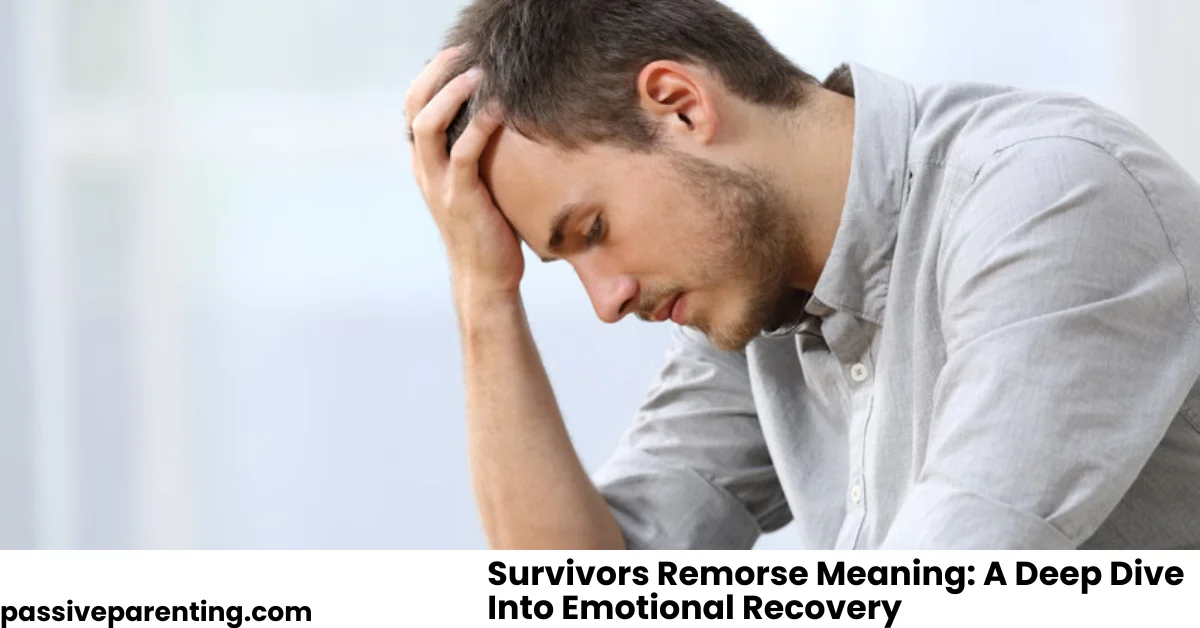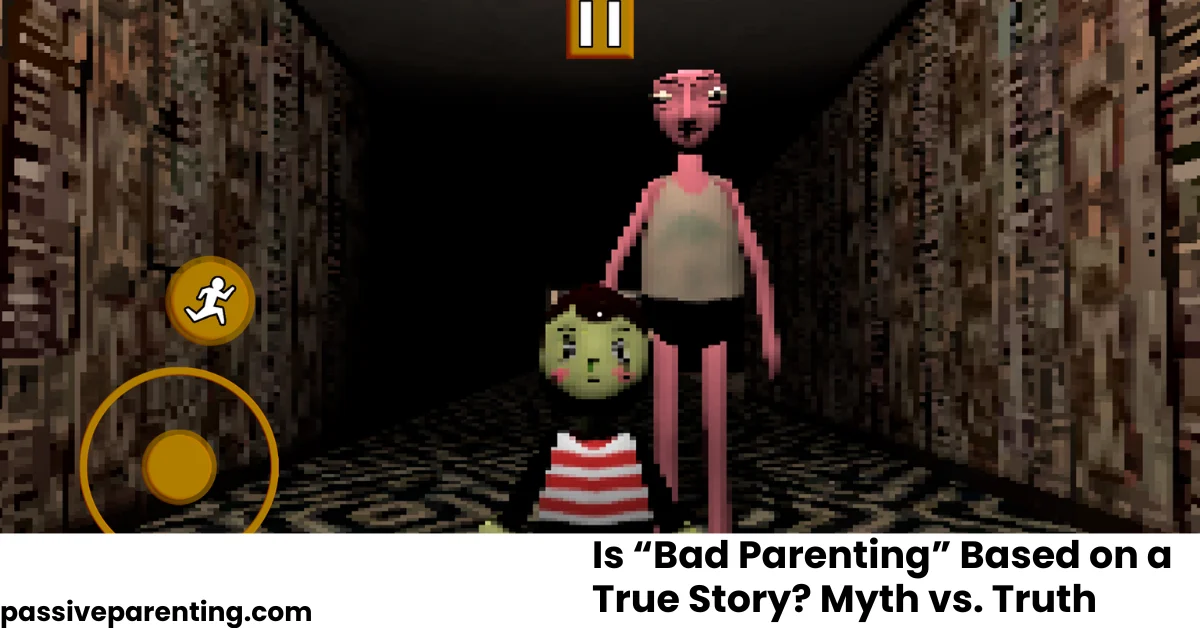Survivor’s remorse meaning goes beyond simple guilt. It is a powerful emotional experience that often affects those who have lived through traumatic events while others did not. Whether it’s surviving an accident, illness, war, or disaster, this feeling of undeserved survival can deeply influence one’s mental and emotional health. Understanding survivor’s remorse is the first step toward healing and acceptance.
What Does Survivor’s Remorse Mean
At its core, survivor’s remorse refers to the intense feelings of guilt and sadness experienced by someone who survives a situation where others were harmed or killed. People often find themselves asking questions like, “Why did I live when they didn’t?” or “Could I have done something to help?”
This emotional response is rooted in empathy and moral reasoning. Survivors may feel they do not deserve their second chance at life or believe they failed others in some way. These thoughts can create a cycle of self-blame, sadness, and confusion.
The Psychological Roots of Survivor’s Remorse
The Human Need for Fairness
Humans have a natural sense of fairness. When someone lives through an event that claims other lives, it can disrupt this internal balance. Survivor’s remorse meaning often stems from the belief that survival should have been evenly distributed, that everyone should have had an equal chance.
Trauma and Empathy Connection
Those who experience trauma together often form deep emotional bonds. When one survives, they may internalize the loss of others as their own. Empathy becomes intertwined with guilt, creating a complex emotional burden that’s difficult to untangle.
Mental Health Factors
Survivor’s remorse is not a clinical diagnosis, but it can lead to serious mental health challenges such as depression, anxiety, and post-traumatic stress. For many, the constant replay of traumatic memories intensifies guilt and prevents emotional closure.
Real-Life Situations Where Survivor’s Remorse Appears
Accidents and Natural Disasters
Individuals who survive car crashes, plane incidents, or natural disasters often question why they were spared. The randomness of survival can make it difficult to accept the outcome.
War and Combat
Veterans and soldiers commonly face survivor’s remorse after losing comrades. The feeling of having returned home safely while others did not can cause deep emotional conflict and isolation.
Illness and Health Battles
Those who recover from serious illnesses, such as cancer or pandemics, might feel guilt for surviving when others succumbed to the same disease.
Tragedies in Everyday Life
Even non-lethal events, such as mass layoffs, can trigger survivor’s remorse. Employees who keep their jobs may feel guilty toward those who were let go.
Emotional Symptoms of Survivor’s Remorse
Understanding survivor’s remorse meaning also involves recognizing its emotional symptoms. These can range from subtle guilt to overwhelming sadness.
- Persistent Guilt: Feeling undeserving of survival or happiness.
- Emotional Numbness: Difficulty feeling joy or contentment.
- Intrusive Thoughts: Constant replay of the event and what could have been done differently.
- Isolation: Withdrawing from others due to shame or confusion.
- Hopelessness: A loss of interest in life or fear of experiencing joy again.
Physical and Behavioral Signs
Emotional pain often manifests physically and behaviorally. People may:
- Struggle with insomnia or vivid nightmares.
- Experience fatigue or headaches from stress.
- Engage in self-sabotaging behavior, consciously or unconsciously.
- Avoid reminders of the event or survivors connected to it.
Survivor’s Remorse vs Survivor’s Guilt
While the two terms are often used interchangeably, there’s a subtle difference.
- Survivor’s remorse emphasizes emotional conflict and sadness tied to moral reasoning.
- Survivor’s guilt often appears as a symptom of post-traumatic stress disorder (PTSD) and involves intrusive memories or flashbacks.
In both cases, the survivor struggles with internalizing loss and finding meaning in their continued existence.
How Survivor’s Remorse Affects Daily Life
The meaning of survivor’s remorse extends beyond the mind. It can reshape relationships, work life, and even personal identity. People may:
- Push loved ones away due to feelings of unworthiness.
- Overcompensate by helping others to “make up” for surviving.
- Struggle to enjoy milestones or success.
- Develop long-term anxiety about safety and mortality.
The Importance of Understanding Survivor’s Remorse
Recognizing survivor’s remorse meaning is essential for emotional healing. Understanding that this feeling is a natural human response, not a moral failing, allows survivors to start processing their emotions rather than suppressing them.
Healing begins when individuals learn that guilt is a byproduct of empathy, not wrongdoing.
How to Cope With Survivor’s Remorse
Accept Your Feelings Without Judgment
Guilt, sadness, and confusion are all normal responses. Instead of suppressing them, allow yourself to feel and acknowledge them. Acceptance is the first step toward healing.
Talk About the Experience
Sharing your story with trusted people or support groups helps lighten the emotional load. Verbalizing your feelings creates space for empathy and understanding.
Seek Professional Guidance
Therapists can provide coping tools tailored to survivor’s remorse. Techniques like cognitive behavioral therapy (CBT) help reframe harmful thought patterns and promote healing.
Practice Self-Compassion
Remind yourself that survival is not a sin. Acts of self-kindness, such as journaling, meditation, or simple relaxation, can help restore inner peace.
Honor Those Lost
Many find healing through action. Volunteer work, memorials, or positive life changes in honor of others can help survivors find purpose in their continued life.
When Survivor’s Remorse Becomes Overwhelming
Sometimes, survivor’s remorse may intensify into a debilitating emotional state. If you notice persistent sadness, hopelessness, or harmful thoughts, professional help becomes crucial. Mental health professionals can assist in processing guilt and building resilience.
Overcoming the Weight of Guilt
Healing from survivor’s remorse is not about forgetting. It’s about transforming guilt into gratitude. Survivors can move forward by recognizing the value of their second chance and using it to live meaningfully.
When guilt shifts toward appreciation, life begins to regain color and purpose.
The Role of Time in Recovery
Time plays a major role in emotional recovery. Survivor’s remorse may not disappear overnight, but its intensity can lessen as the mind and heart process trauma. Over time, people can find balance between honoring the past and embracing the present.
Helping Others With Survivor’s Remorse
If someone you know is struggling with survivor’s remorse, offer gentle support. Listen without judgment, encourage professional help, and avoid minimizing their feelings. Compassion and patience can make a world of difference.
Spiritual and Philosophical Healing
Some find comfort in spirituality or philosophy. Reflecting on the meaning of life, destiny, and human connection can bring peace. Understanding that survival has purpose can transform remorse into motivation.
Moving Forward With Strength and Purpose
Survivor’s remorse meaning ultimately teaches a lesson about empathy, resilience, and the human condition. By embracing life with gratitude, survivors can turn pain into purpose.
Every step forward becomes an act of honoring those who couldn’t take theirs. Healing is not forgetting; it is learning to live meaningfully again.
Final Thoughts
Understanding survivor’s remorse meaning allows us to see guilt not as a weakness, but as a reflection of love and empathy. Every survivor’s journey is different, but with time, compassion, and support, emotional peace is possible.
Life after trauma is a testament to resilience. Learning to forgive yourself is not only healing, it’s an act of courage.




